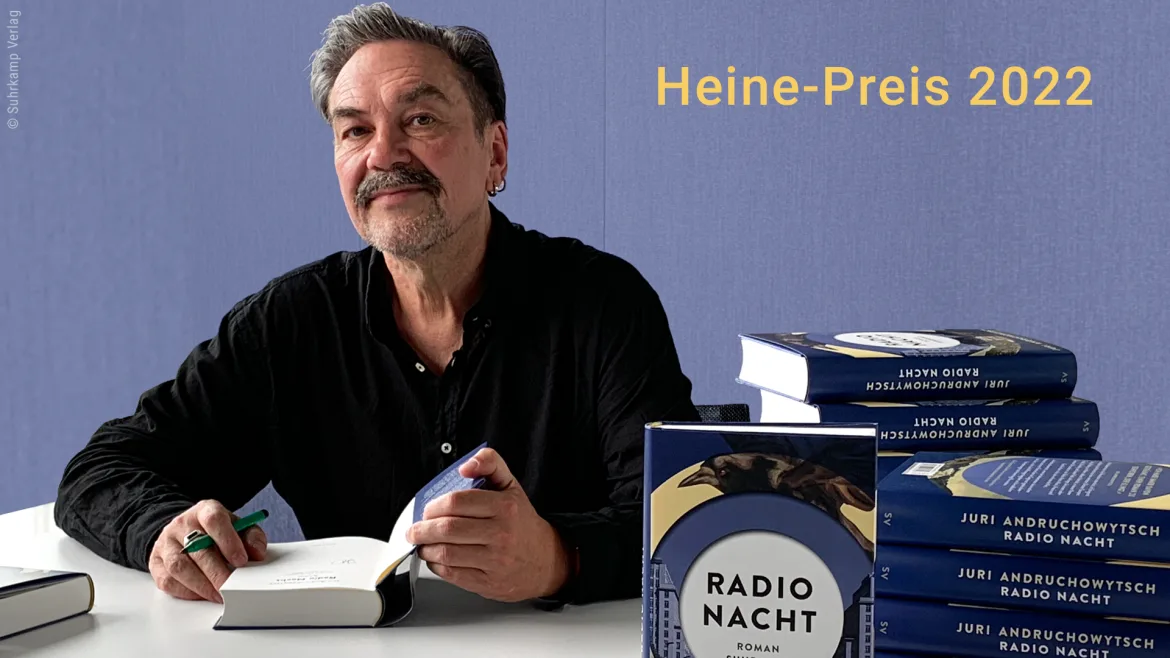Yuri Andrukhovych awarded Heine-Preis 2022
News
The Ukrainian poet, writer and translator Yuri Andrukhovych receives this year’s Heine-Preis awarded by the city of Düsseldorf.
Yuri Andrukhovych was informed of the award by telephone after the jury meeting by Mayor Dr Stephan Keller: »I am very thrilled about the prize and thank the jury for their decision. I feel honoured by so much attention from Germany. Now I will visit the Frankfurt Book Fair as the recipient of the Heine-Preis,« Andrukhovych said.
Mayor Dr Stephan Keller: »With Yuri Andrukhovych, the state capital of Düsseldorf is honouring a staunch advocate of European values who is committed to a free and independent Ukraine with close ties to Europe. I am very pleased about Andrukhovych’s award, which reminds us to continue to stand in solidarity with Ukraine and the Ukrainian people.«
The jury explained its decision as follows: »Andrukhovych, one of the leading Ukrainian novelists, poets and essayists of our time, writes about the situation of the individual in Central European history and the present. In doing so, he sharply criticises abuses by the secret services, the military and the judiciary. A sense of irony and the grotesque characterise his work in true Heine fashion. He plays with literary forms and crosses the boundaries between reality and fantasy. Yuri Andrukhovych is passionately committed to the European idea and represents the identity of Ukraine as a cultural nation. He reminds Europe that Ukraine is the front where freedom and human rights are being defended.«
The Heine Prize is awarded by a jury appointed by the Council of the State Capital of Düsseldorf »to personalities who through their work in the spirit of Heine's emphasis on the basic rights of man, advance social and political progress, mutual understanding of the peoples, or spread the idea that all people belong to the same group: mankind«.
The Heine-Preis is one of the most important prizes for authors and personalities in Germany and was established in 1972. It is endowed with 50,000 Euro. Previous recipients include Carl Friedrich von Weizsäcker, Marion Gräfin Dönhoff, Max Frisch, Richard von Weizsäcker, Wolf Biermann, Hans Magnus Enzensberger, W.G. Sebald, Elfriede Jelinek, Amos Oz, Jürgen Habermas, Alexander Kluge and Rachel Salamander.